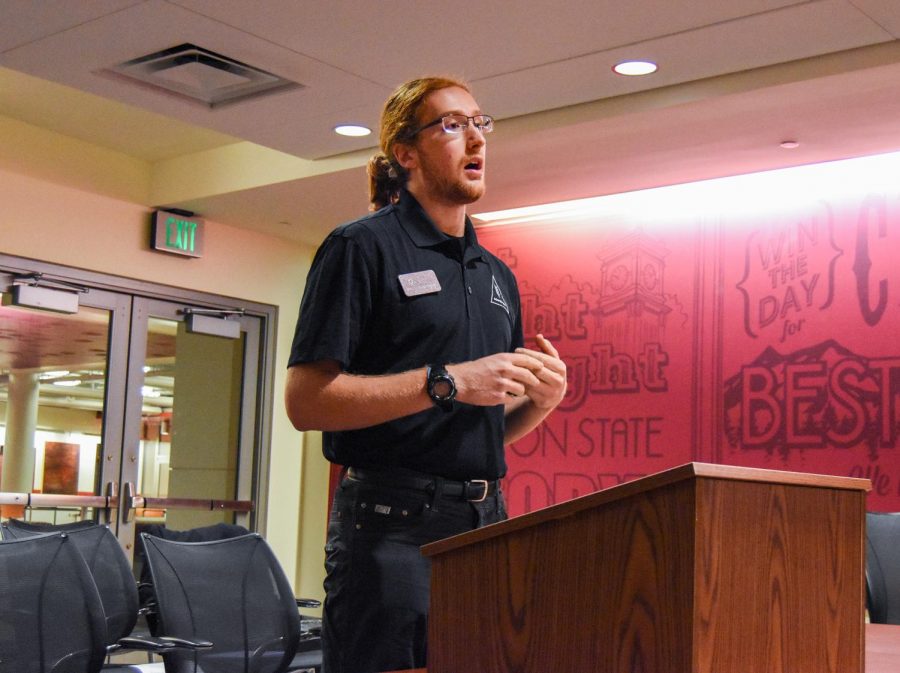Senate discusses removal of Snake River dams
Resolution draft sent back to authors to rewrite, restructure
Patrick Robichaud, ASWSU environmental sustainability alliance committee chair, urges senators to take action and make a difference by taking down Snake River Dams at the ASWSU meeting on Tuesday evening, at the CUB.
October 17, 2019
ASWSU’s director of legislative affairs and another student expressed their opposition to an upcoming resolution that supports the removal of the lower Snake River dams during last night’s senate meeting.
All-campus senator Linda Vargas is writing the resolution to call for support from Washington’s Legislature to support a federal project that would remove the dams.
“We can’t go down there ourselves and remove the dams, but we can pass on this resolution to Washington legislators and collaborate with other universities to support it,” Vargas said.
Vargas, environmental science major, said the dams are negatively affecting salmon populations and the river conditions.
Senator Hannah Martian said the resolution was sent back to Vargas due to formatting issues in its writing. It will be formally addressed by the Senate in the future.
Vargas worked with Patrick Robichaud, ASWSU’s Environmental Sustainability Alliance chair, to write the resolution because alternate energy sources such as wind turbines and solar farms have reached a point where they can sustain the Northwest region, Vargas said.
Robichaud said the energy outputs of the dams have decreased over time and have become too great of an environmental issue to maintain.
Joshua Hiler, sophomore political science major, spoke out against the bill during the public testimony session.
“I understand the dangers it presents to the salmon population,” Hiler said. “The problem with demolishing the dam is nuclear power is the only other significant carbon free energy source.”
He said nuclear power is not favorable in the eyes of the state’s government and 68 percent of the state’s energy comes from hydropower.
“I feel while it’s well-intentioned, the idea has pretty significant drawbacks due to the reliance on carbon it would create,” he said.
ASWSU Director of Legislative Affairs Josh Maasberg also expressed concerns with the resolution in regard to his lobbying efforts with the state government. He testified the official viewpoint from the legislative affairs committee.
“I’m concerned the resolution will be viewed as partisan and will affect our lobbying efforts in Olympia,” Maasberg said.
He said he wanted to work with both parties and was worried how the resolution would be seen by Republican members of Congress.
Before his testimony, he also addressed the Senate about not attending a Washington Student Association conference last week. The association is a nonpartisan statewide body that represents all students attending institutions of higher education, according to the WSA website.
He said he and his team did not want to attend a meeting for the sake of a meeting unless there was actual work to be done. During the trip to the conference in Bellingham, he said they decided it was not worth the school and professional time they were sacrificing and returned to Pullman shortly after entering Colfax.
“We had a conversation with our intent of us attending the meeting,” he said. “It is important to show our support for WSA, but we did not think we needed to spend 16 hours of driving to do something we already got done.”
He said they already had confirmation that their lobbying efforts would be passed during the meeting.
Martian said she did not feel like the communication from Maasberg’s team and their decision to cancel attending the meeting was appropriate.












